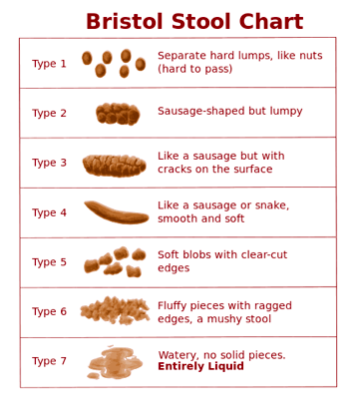This topic may be uncomfortable but it is so important for you to know what makes a healthy “poop” because it can tell you a lot about your digestion. If you are experiencing digestive issues then this can be an indication that something else is going on that you may need to address.
Is My Poop Normal?
The state of your digestive system and resulting bowel movements can reflect your physical and sometimes even emotional health. Recent research suggests that your brain and the good bacteria in your gut communicate directly, influencing your mood, immune system and even the level of inflammation in the body.
If your poop isn’t healthy, your digestive tract is either moving too slow or too fast which can lead to an increased risk of developing chronic health conditions like autoimmune disease, chronic inflammatory conditions and so much more.
There are a few key fundamentals to a healthy poop:
- Frequency
Research suggests that you should be eliminating every day. In fact, the range of “normal” is typically 1-3 times a day. Poop is waste and you need to get rid of it daily to ensure proper toxin removal. Optimal timing is eliminating after each main meal three times per day. If you are not going daily or if you are going more than 3 times per day that is often a sign of digestive imbalances. - Colour
Many foods can affect the colour of stool including dark green foods like kale as well as bright red foods like beets. On the contrary, dark black stools can be in indication of a bleeding ulcer and alternatively very light, pale stools can indicate liver or gall bladder issues. On an average basis, the stool should be a medium brown colour. - Sink or float
Most of the stool should be just below the water line with the “head” of the stool just above. If the stool is continually floating, that is a sign that you are not digesting your fats properly. Alternatively, if the stool is consistently sinking, that indicates a lack of dietary fiber. - Shape
A healthy poop is shaped like a sausage or a snake, smooth and soft. - Effort
A bowel movement should not involve any unusual effort or length of time to complete. If you can finish the entire newspaper or need to strain to get it out, there is an imbalance in your digestive tract and you are at risk for developing hemorrhoids. - Time
An ideal bowel movement occurs in just one sitting. If it takes several times to complete the job or if you are left feeling not completely empty then this is less than optimal.
Did you know there is an “official” standard for poop?
The Bristol Stool Scale
The Bristol Stool Scale was created at the prestigious University of Bristol in the UK back in 1997. Numbers 3 and 4 are considered normal.
The scale breaks down types of poop into seven different categories ranging from type 1 which is very constipated, to type 7 which is diarrhea:

1 – Separate hard lumps (very constipated).
2 – Lumpy and sausage-like (slightly constipated).
3 – Sausage shaped with cracks in the surface (normal)
4 – Smooth, soft sausage (normal).
5 – Soft blobs with clear-cut edges (lacking fiber).
6 – Mushy consistency with ragged edges (inflammation).
7 – Liquid consistency with no solid pieces (inflammation).
Other Tips to Improve Digestive Health
- Eat a healthy, whole food diet! If you are consuming nutrient dense whole foods then your digestion will be receiving what it needs to perform optimally!
- Drink enough water! This is the simplest and most often missed step to good elimination. Aim for half your body weight in ounces of filtered water daily.
- Try squatting to poop or use the Squatty Potty to help. Surprisingly, this can make a big difference for some people.
- Eat enough healthy fats, especially from coconut oil, olive oil, avocados, raw nuts and seeds as well as grass-fed butter.
- Boost gut bacteria with probiotics, fermented foods, apple cider vinegar or kombucha. Try the Coconut Milk Yogurt recipe below to enhance your digestion. My two favourite probiotics are Ultra Flora Balance and HMF IBS.
- Support your digestion with enzymes. Digestive enzymes will ensure that you are efficiently breaking down and digesting your food properly. They also quickly help to eliminate gas and bloating. My favourite digestion enzymes are Digestzymes.
- Get enough fiber. Aim for 25-35 grams of fiber per day. Consume high fiber foods such as flax seeds, chia seeds, raw fruits and vegetables as well as legumes, raw nuts, quinoa and oatmeal. Add extra fiber in your diet with Metafiber or just better Prebiotic! Simply add to your favourite smoothie or plain water to boost your daily fiber intake.

